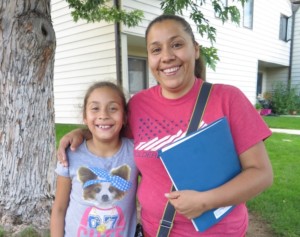Chinese Scholars Advocate for Well Rounded People and Lifelong Learning

A year ago a policy center associated with the Chinese government released a new set of student learning goals aiming at preparing well-rounded individuals. About 100 university experts in education spent three years working on it.
Organized in three categories–cultural foundation, independent growth, social participation–the outcomes mark a departure from the test-prep past. The desired outcomes are broad ranging from “concrete knowledge and skills to emotions, attitudes and morals.” While serving as a graduate profile, the framework acknowledges that “growth is a lifelong process that can be taught and studied, first in the home and at school, and then perfected throughout one’s life.”
The six core competencies are outlined below:
Cultural Foundation: culture is the soul of human existence. The foundation of culture, which is highly dependent on a human’s ability to learn science, and other fields of knowledge and ability, is also the ability to master and use humanity’s excellent wisdom, to conserve inner spirit and to pursue truth and development towards becoming a more tolerant and civilized foundation.
- The spirit of the humanities: While students study, understand, and use sophisticated fields of knowledge and ability, they form the foundation of ability, emotions, attitudes and direction of values. This includes cultural experiences, feelings and an interest in the arts.
- The spirit of the sciences: While students study, understand, and use scientific knowledge and skills, they form moral standards, particular ways of thinking, and particular ways of expressing behavior. This concretely includes rational thinking, critical thinking, and the courage to investigate.
Independent Growth: Independence is where a person is the main foundational root. Independent development heavily emphasizes effective management of one’s studies and one’s life, acknowledgment and discovery of one’s value and worth, exploration of one’s own potential, effective response to complicated environments, accomplishment, development of a distinct life direction, and character.
- Learning about how one learns: While students study, they become aware of different forms of study, such as how to study, different styles, methods, and choices of study, the process of studying, evaluating, controlling, etc. This includes enjoying studying, improving studying, diligent reflection, and awareness of information.
- Physical health: The student has an awareness of him/herself, develops mentally and physically, and plans his/her life. This includes cherishing his/her life, strengthening his/her integrity, and managing his/her own life.
Social Participation: The act of being social is a core piece of human nature. Social participation emphasizes the ability of a person to handle relationships with society, to cultivate, respect, and carry out a modern citizen’s virtues and standards, to increase society’s sense of social responsibility, to promote creativity and execution, to promote each person’s value, to promote society’s progression and development. This development will help students become people who hold ideal beliefs and who dare to shoulder this responsibility.
- Responsibility: While students manage relations with society, country, and global communities, they shape their feelings and attitudes, the direction of their values and their behavior. A concrete example is social responsibility, national identity, and international understanding.
- Practice and innovation: While students are, in their everyday lives, solving problems and facing challenges, they develop the ability to practice [what they learn] and form an awareness of creativity. This concretely refers to an awareness of physical labor, problem-solving, technology use, etc.
The framework concludes with a couple pages of implications for the six competencies. For example, the objective associated with the last statement on problem-solving is “to be good at finding and bringing up questions; to have an interest and enthusiasm for problem-solving; to choose and formulate a reasonable solution based on the specific situation and conditions; to execute solutions in complicated situations.”
The remarkable framework even has the answer to cherishing life, “to understand the meaning of life and the value of life; to have an awareness of safety and the ability to protect oneself; to participate in exercise that best fits one’s skills, and to cultivate healthy and sophisticated behaviors, habits and lifestyle.”
Most schools in China still feel the pressure of the 9th grade (zhongkao) and 12th grade (Gaokao) tests but the new graduate profile is a step in the right direction. When the Chinese government updates its graduation profile for its 200 million learners with a focus on deeper learning, global competence and social-emotional learning, it may be time to update your graduate profile (here’s how).
For more, see:
- Measuring What Matters: A Framework Review
- Deeper Learning: What We Know So Far
- Proposal For An Innovation Diploma
Stay in-the-know with all things EdTech and innovations in learning by signing up to receive the weekly Smart Update.





0 Comments
Leave a Comment
Your email address will not be published. All fields are required.